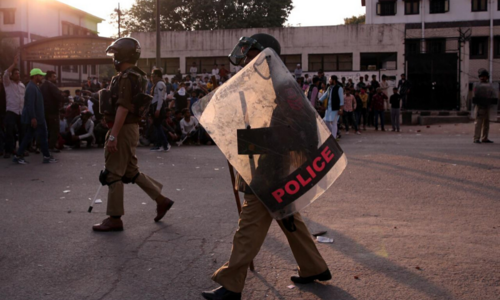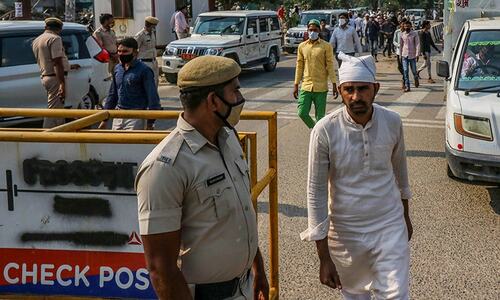Pakistan condemns burning, vandalisation of Muslims' houses by 'Hindu zealots' in India's Rajasthan

Pakistan strongly condemned on Tuesday the "senseless vandalisation and burning of more than 40 houses of" the Muslim community in the Karauli area of India's Rajasthan state by "Hindu zealots" during recent communal clashes, a statement issued by the Foreign Office said.
According to Indian publication The Wire, the clashes broke out on April 2 "after stones were pelted at a motorcycle rally taken out to celebrate the Hindu new year, prompting authorities to clamp a curfew, suspend the internet and deploy 600 police personnel".
Around 35 people were injured in the violence and 46 people were initially taken into custody by police for interrogation, a report by NDTV said, adding that a case was registered against 13 people. Later, the report said, police arrested another 33 people for violating the curfew order.
The reports said houses and shops were set on fire during the episode but did not confirm the number of properties that were damaged.
However, in its condemnation, Pakistan said over 40 properties belonging to the Muslim community were set ablaze and vandalised by "radical Hindu zealots belonging to the BJP-RSS (Bharatiya Janata Party-Rashtriya Swayamsevak Sangh) dispensation with the connivance of local security authorities" during the clashes.
"Equally alarming is the apathy of state machinery which wantonly looked the other way and failed in its basic duty of protecting the lives and properties of its citizens," the statement said, adding that regretfully, minorities in India, especially Muslims continued to live under fear and intimidation.
"The BJP-RSS combine has enabled [the] perpetration of senseless violence against minorities as part of its ‘Hindutva’ agenda marked by hate and majoritarianism," the statement read.
It added that recent history was replete with traumatic instances that reflected the current Indian regime’s deep-seated animosity against Muslims in the country.
"Deafening silence of the BJP leadership and absence of discernible action against ‘Hindutva’ proponents must ring alarm bells across the international community. Rather than relenting in their hostilities against Muslims, the BJP-RSS activists have intensified the atrocities" the statement said.
In this connection, the FO cited the example of Yati Narsinghan, an infamous Haridwar priest, once again "brazenly" calling upon Hindus on April 3 to take up arms against Muslims.
"Pakistan calls upon the international community to take immediate notice of the worrying level of Islamophobia in India and prevail upon Indian authorities to prevent systematic human rights violations against minorities, particularly Muslims, and take effective steps to ensure the safety, security and well-being of all minorities in India," the statement read.















































